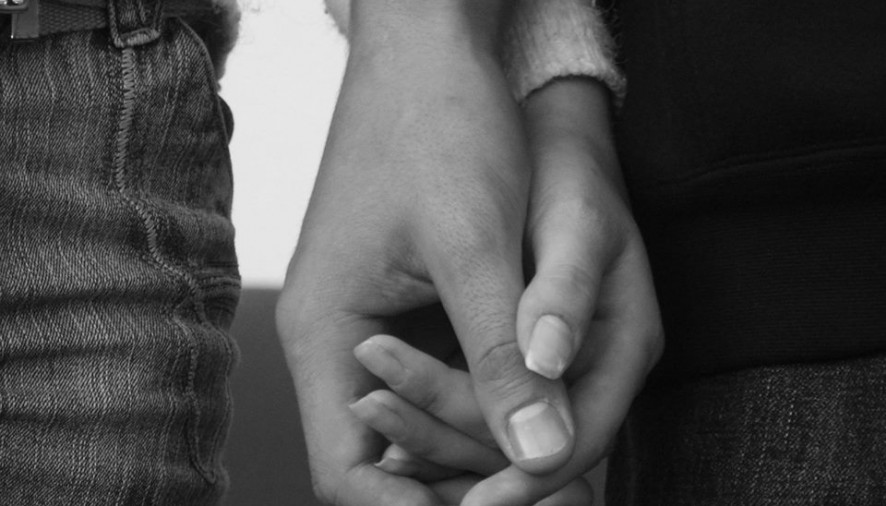It’s that time of my life. I’m graduating, hopefully getting a job and adult-ing full time. Oh yeah and I could get married, if I wanted. Yes, at 21. No, I haven’t found the One.
I mean an arranged marriage guys, it’s an option.
When I used to think of arranged marriage I basically used to think – no way. Not knowing who the person I would be marrying was a terrifying prospect and I don’t blame anyone who does hold that idea. However, I am not just a woman of a secular society I’m also a Pakistani Muslim. Just to be clear, I would like to say neither of those elements of my identity prescribe any fixed way of entering into marriage. But, through my experience of them I have nevertheless been introduced to arranged marriage as a viable option.
What I mean by arranged marriage isn’t as prescriptive as you might think, nor is it what you might have been led to believe through horror stories of what I consider abuse of the institution of marriage. For example, although I suppose meeting a man at the altar is one way of doing it, I reckon a degree or two of consent is missing from that situation. A more harmful aspect of arranged marriages could also be the degree of pressure to comply with your respective family’s decision on who they think is best, even if when you get ample time to meet and get to know your a prospective partner. This has the potential to go further than just having to deal with a Monster-in-law, it can involve being pushed into marrying someone for familial status or a job. No, I mean having an open discussion with one’s parents about wanting to get married with the view of going into a relationship sanctified by God.
Now, I know that sounds outdated but I swear the language makes it worse, how about I put it like this: I want to trust in another person’s humanity as far as I possibly can without doubting myself first. All too often I feel as if we’re pulled into the trap of thinking we know someone. You might think you know what makes them happy, annoyed, turned on or what their favourite food is and that knowledge can become checklist which you judge yourself against to see if you’re compatible. However, all those things are transient and can easily change. How many times have you heard ‘we’re just not the same people anymore’?
Only having a few meetings to figure someone out might push you to find out what is actually most important to you in another person, and also consider how you might change because it’s the rest of your life. You’ll have to move past a charming smile or coffee-snob-soulmate allure and ask them if they’ll be willing to spend a potential mid life crisis camping on some godforsaken trail with you. The change in focus can be characterised as emphasis on behaviour to emphasis on character. Character, like human nature can be hard to shift and change. It’s something you can trust in.
As far as I am concerned, I truly believe that whatever I get out of life was meant to be, and that extends to relationships. That’s not to say that I don’t also think that I have a duty to consciously look after myself and make the best choices, but I don’t see the future as a choice you can make. So in the moment that you’re making the decision to spend your life with someone there isn’t enough of a difference, in terms of consequences, between thinking you know someone and saying yes and not knowing someone and saying yes. I could never choose an arranged marriage though if I thought for one second that I had no rights. If I enter into it, then I have the right to leave and if I have those rights so would my husband, and if we wanted to enforce those rights there would have to be respect, and if there’s respect then you can build trust. That, is, a relationship. You know that the other person is human and they know you are too. I would never presume to pass judgement on anyone’s relationships; but for me, in conjunction with a little faith, there is beauty to a relationship conceived that way- ‘that way’ meaning a commitment from the get go.
I’ll be the first one to call out my privilege in having an open and communicative family, a stable economic position, no additional vulnerabilities to be easily exploited and a heteronormative outlook on life. Nevertheless, I feel that being part of arranged marriage carries the stigma that the participants never have any agency or choice and I don’t think a lot of people see how that isn’t always true. I’ve seen arranged marriages go horribly wrong in my own family and I’ve seen them be the strongest relationships, just like with any other marriage. Of course all relationships can be subject to abuse and the role of institutions in facilitating this is not to be ignored but then people in un-arranged relationships unfortunately still suffer under abusive partners and friends, no one institutionalised those.
Summarily, how a relationship develops is contingent on so many factors but for a lot of people it’s not always first and foremost romantic love that seals the deal. There might be an element of cultural or religious acceptance of arranged marriage that predicates it as an option but the process itself isn’t something to be looked down on. It can just be viewed as an alternative route into marriage that narrows the millions of factors to consider down to a few core character traits and the knowledge that you’re both human.
Mahrukh Adnan Shaukat
Image courtesy of Michaela Buskell

